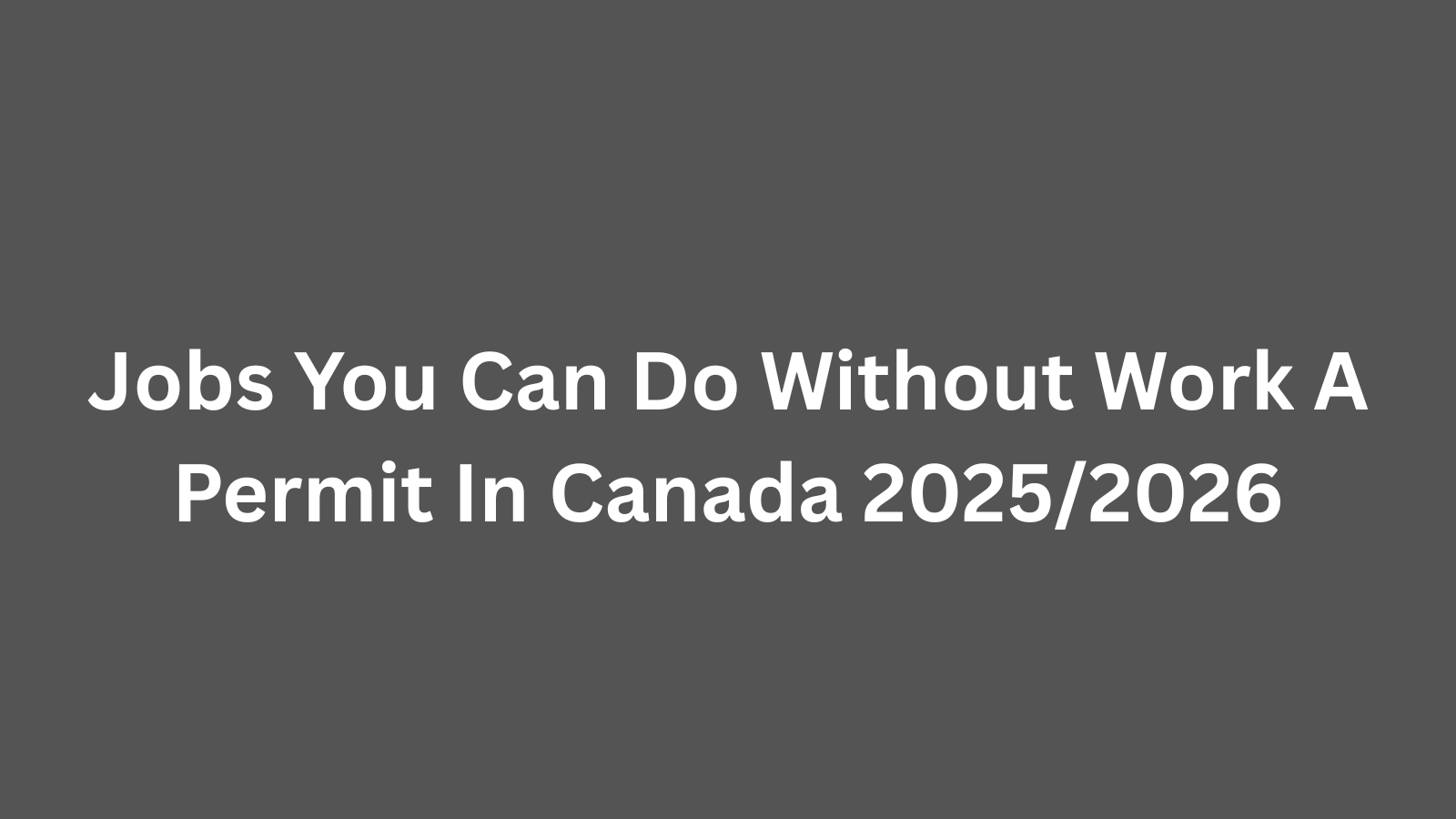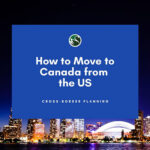Canada is one of the most popular destinations in the world for people looking for better opportunities — and it’s easy to see why. With a strong economy, diverse culture, and welcoming immigration system, many newcomers dream of working there.
But one common question that often comes up is
“Can I work in Canada without a work permit?”
The short answer is yes, but with very clear limits. In Canada, most jobs require a valid work permit issued by Immigration, Refugees and Citizenship Canada (IRCC). However, some specific types of work are exempt — meaning you can perform them legally without needing a work permit.
If you’re planning to move to Canada in 2025 or 2026, this guide will walk you through the kinds of jobs and activities you can do without one, the rules that apply, and what you should keep in mind to stay compliant.
Understanding “Work Without a Permit” in Canada
Before we dive into the list, it’s important to understand what “no work permit” really means.
In Canadian immigration law, “work” means any activity for which you’re being paid or that competes directly with Canadian citizens or permanent residents in the labour market.
That’s why most employment — even short-term or part-time — requires a work permit.
However, the Canadian government recognizes that some activities do not really take away jobs from Canadians. These may include short-term visits, academic work, or jobs where the employer is not Canadian.
These are the kinds of situations where a work permit may not be required.
Jobs and Situations Where You Don’t Need a Work Permit (2025–2026)
Here’s a detailed list of the most common types of work that don’t require a work permit in Canada — along with simple explanations of why they qualify.
1. Business Visitors
If you’re visiting Canada temporarily to attend meetings, conferences, or training for your foreign employer — you can do this without a work permit.
You can:
-
Attend business meetings or trade fairs
-
Negotiate contracts
-
Visit company branches or clients
You cannot, however, work for a Canadian employer or directly sell to the public.
Duration: Usually short-term, often under six months.
2. Foreign Representatives and Their Family Members
If you are a diplomat, government official, or representative of a foreign country or organization (like the UN), you can work in Canada without a work permit.
Your family members (like a spouse or dependent children) may also be eligible to work or study without a permit, depending on your diplomatic status.
3. Performing Artists
Musicians, actors, or other performers may not need a work permit if they are:
-
Performing in Canada for a limited time,
-
Not being hired for long-term positions, and
-
Not involved in film or TV production that employs Canadian workers.
This includes:
-
Guest musicians for concerts or shows
-
Circus performers or cultural entertainers
Duration: Temporary, usually for the length of the event or performance.
4. Athletes and Coaches
If you are an athlete competing in Canada or a coach/trainer accompanying your team, you can participate without a work permit.
Examples include:
-
Hockey players visiting for tournaments
-
Track and field coaches traveling for short events
5. Clergy or Religious Workers
Ministers, priests, or spiritual leaders who are invited to preach or conduct religious duties in Canada can do so without a work permit — as long as they are not being hired into a permanent paid position by a Canadian organization.
6. News Reporters and Media Crews
Foreign journalists and media teams covering news or events in Canada do not need a work permit.
This applies to:
-
Correspondents for international news outlets
-
Film crews covering non-Canadian productions
Duration: For the length of the assignment.
7. Public Speakers and Guest Presenters
If you are invited to speak at a seminar, convention, or university for a short duration (usually 3–5 days), you can do so without a work permit.
Examples include:
-
Motivational speakers
-
Academic guest lecturers
-
Business consultants at conferences
8. Short-Term Highly Skilled Workers
Professionals in senior or specialized roles (like engineers, managers, or scientists) may be allowed to work up to 15 days once every six months or 30 days once a year without a work permit.
This exemption is meant for experts who come to Canada for short, intensive projects that require their specific skills.
9. Students Working On-Campus
If you are a full-time international student with a valid study permit at a designated learning institution (DLI), you can work on your school campus without a separate work permit.
You can:
-
Work at the library, cafeteria, or as a research assistant
-
Take part in school-run jobs or organizations
Hours: Unlimited for on-campus work, but you must remain a full-time student.
10. Researchers and Academic Visitors
Certain researchers and professors can work temporarily in Canada without a work permit if they’re coming for specific research projects at Canadian universities or institutions.
Duration: Up to 120 days in a 12-month period.
11. Emergency Service Providers
If you enter Canada to assist in emergencies such as natural disasters, accidents, or health crises, you can work without a permit.
This includes:
-
Medical teams
-
Search and rescue crews
-
Disaster response professionals
12. Crew Members
Airline staff, truck drivers, and marine crew who work for international transportation companies can perform their duties in Canada without a work permit — as long as they’re not employed by a Canadian company.
13. Examiners and Evaluators
If you are invited to evaluate research, academic programs, or theses, you can do so without a work permit. This typically applies to professors or senior professionals.
14. Self-Employed and Remote Freelancers (With Conditions)
If you are in Canada but working remotely for clients outside the country, you might not need a work permit — because you are not competing in the Canadian labour market.
For example:
-
Freelance writers, designers, or programmers working for clients abroad
-
Online tutors with students outside Canada
⚠️ Be careful: If your clients are in Canada or if your work benefits a Canadian company, a work permit may still be required.
⚖️ Important Rules and Warnings
While these exemptions sound flexible, it’s crucial to remember a few key points:
-
You must still have legal status in Canada — as a visitor, student, or resident.
-
You cannot stay or work beyond your authorized period.
-
You must not take a job that replaces a Canadian worker.
-
Always check IRCC’s latest updates, as immigration policies can change every year.
-
Keep proof of your exemption — such as invitation letters, event schedules, or contracts — in case you are asked at the border or by immigration officers.
Conclusion
Working in Canada without a work permit is possible — but only under specific, well-defined situations. Most jobs still require a valid work permit, but exemptions exist to make it easier for short-term professionals, students, artists, and other special groups to contribute to Canadian life temporarily.
If you’re planning to come to Canada in 2025 or 2026, make sure you:
-
Understand your visa or permit status
-
Choose the right type of activity that fits under an exemption
-
Follow all Canadian immigration and tax laws
Remember: breaking immigration rules can affect your ability to get a future visa or permanent residence. When in doubt, always confirm with Immigration, Refugees and Citizenship Canada (IRCC) or a licensed immigration consultant before starting any work.





